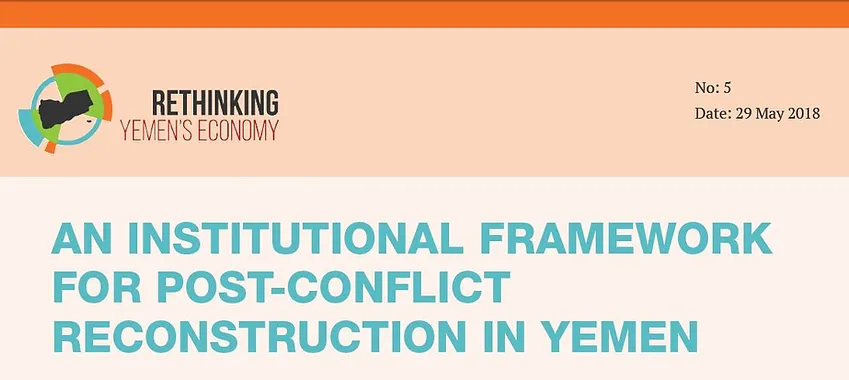INTRODUCTION
The current conflict in Yemen follows decades of political and economic turmoil. Any future reconstruction efforts will face a daunting task. For example, World Bank estimates from 10 cities in Yemen revealed a quarter of the road network was partially or fully destroyed as of 2016, with power production halved and half of all water, sewage and sanitation infrastructure damaged. With the intensification of the conflict since, it is expected that current levels of destruction are far greater. In early 2017 the United Nations also declared Yemen the site of the world’s worst humanitarian crisis; as of April 2018, roughly 22.2 million Yemenis were in need of humanitarian assistance, including 8.4 million at risk of starvation. The country’s gross domestic product declined an estimated 47.1 percent from 2015 to 2017, while 40 percent of households have reported the loss of their primary income source. Most public services have been suspended, leaving 16 million people without access to safe water and 16.4 million with limited or no access to healthcare.
There is little sign of the conflict ending soon. Nevertheless, stakeholders concerned with establishing lasting peace in Yemen must urgently begin laying the groundwork for a comprehensive reconstruction framework to implement in the eventual aftermath of fighting. Experience has shown that it is never too early to begin planning for reconstruction.This policy brief, which is based off of a more extensive White Paper, consists of the following sections:
- The first section provides an account of Yemen’s own history of post-crisis recovery efforts.
- The second section proposes a new institutional model for reconstruction: an independent reconstruction authority that establishes transparent mechanisms for coordination and accountability among all stakeholders.
The policy brief seeks to identify how to ensure the proper flow of funds and the timely completion and overall quality of post-war reconstruction projects. Beyond this, however, it emphasizes the importance of national ownership – meaning the inclusion and buy-in of all Yemeni stakeholders. Such an inclusive framework builds Yemen’s capacity to meet the basic needs and rights of its own people, thereby putting the country on the path toward lasting recovery.
